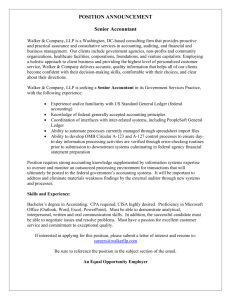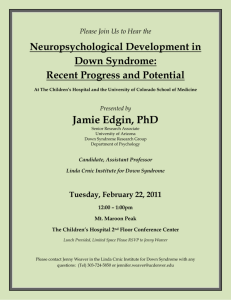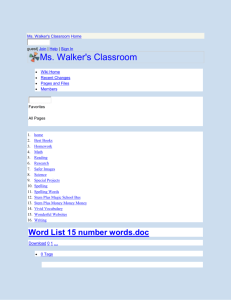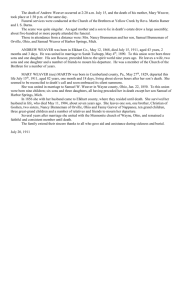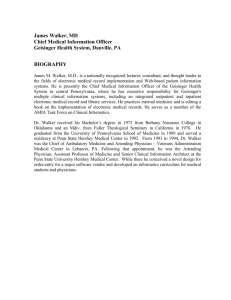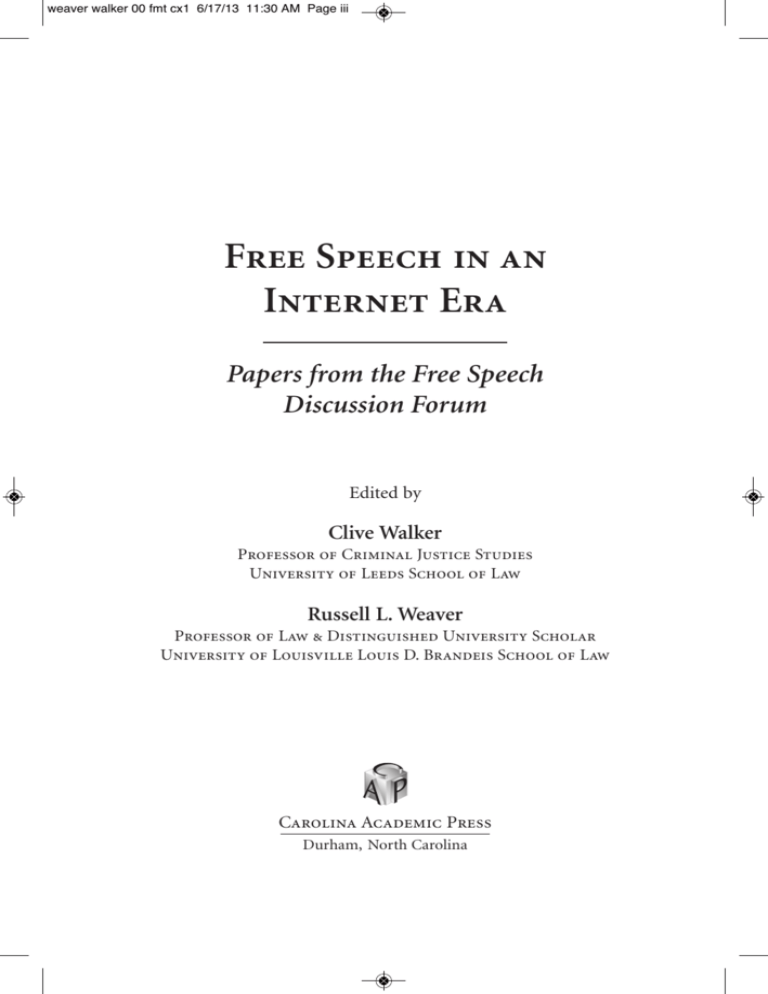
weaver walker 00 fmt cx1 6/17/13 11:30 AM Page iii
Free Speech in an
Internet Era
Papers from the Free Speech
Discussion Forum
Edited by
Clive Walker
Professor of Criminal Justice Studies
University of Leeds School of Law
Russell L. Weaver
Professor of Law & Distinguished University Scholar
University of Louisville Louis D. Brandeis School of Law
Carolina Academic Press
Durham, North Carolina
weaver walker 00 fmt cx1 6/17/13 11:30 AM Page iv
Copyright © 2013
Carolina Academic Press
All Rights Reserved
Library of Congress Cataloging-in-Publication Data
Free speech in an internet era : papers from the free speech discussion forum /
[edited by] Clive Walker and Russell L. Weaver.
pages cm
Includes bibliographical references and index.
ISBN 978-1-61163-407-5 (alk. paper)
1. Freedom of speech--Congresses. 2. Freedom of expression--Congresses.
3. Internet--Law and legislation--Congresses. 4. Information technology-Law and legislation--Congresses. I. Walker, Clive, Professor, editor of compilation. II. Weaver, Russell L., 1952- editor of compilation.
K3254.A6F74 2013
323.44'3--dc23
2013001696
Carolina Academic Press
700 Kent Street
Durham, North Carolina 27701
Telephone (919) 489-7486
Fax (919) 493-5668
www.cap-press.com
Printed in the United States of America
weaver walker 00 fmt cx1 6/17/13 11:30 AM Page v
Contents
Introduction: Free Speech Discussion Forum
Clive Walker & Russell L. Weaver
xi
1 • Can Newspapers Survive in an Internet Era?
Russell L. Weaver, Clive Walker & Geoffrey Bennett
I. The Decline of Traditional Media
II. Attempts to Charge for Online Content
III. A Media Revolution?
Conclusion
3
2 • The New Media in the New World:
Are They Behaving Badly or Doing Their Job?
Jon L. Mills
I. Evaluation of Media Behavior — The Privacy Matrix
1. How and Where Was the Information Obtained?
2. Is the Information True, False, or an Opinion?
3. Is the Particular Information Private in Nature?
4. Who Is Seeking Privacy Protection?
5. Is the Information Newsworthy?
6. In What Jurisdiction or Jurisdictions Did the Intrusion Occur?
II. Applying the Matrix
III. Examples of Media, Good and Bad
1. The Newsgathering Process
2. Print
3. Broadcast
4. Internet
Conclusion
v
4
8
12
25
29
30
31
32
33
34
34
35
36
37
38
40
42
44
46
weaver walker 00 fmt cx1 6/17/13 11:30 AM Page vi
vi
CONTENTS
3 • The Institutional Press, the Internet,
and the Paradox of the Press Clause
William D. Araiza
I. The Problem
II. The Modern Debate
III. The Numerousness Challenge
IV. Norms and the Challenge to the Identity of the Press
1. The Problem
2. The Possibilities of a New Professional Press
V. Preliminary Lessons
1. Special Press Protection Requires Conscious
Inclusion/Exclusion Decisions
2. Exclusion Decisions Are Probably Best Made by Legislatures
3. A Judicial Role Remains in Reviewing the Distinctions
Made by Legislatures
4. Appropriate Identification of the Press May Turn on the
Particular Rights at Issue, and Vice-Versa
Conclusion
47
47
49
51
52
52
53
56
56
56
57
59
60
4 • Does The Internet Require Rethinking First Amendment Theory?
Arnold H. Loewy
61
5 • The Promise and Peril of Protesting in the Internet Era
Christina E. Wells
Introduction
I. The Legal Landscape Relevant to Protestors
1. The Rules
2. The Critics
II. The Promise of Internet Technologies as Applied to Protestors
1. Sustaining Traditional Protests
2. Mounting New Forms of Protest
III. The Perils of Internet Technologies as Applied to Protestors
Conclusion
65
65
66
67
68
70
70
71
73
76
weaver walker 00 fmt cx1 6/17/13 11:30 AM Page vii
CONTENTS
6 • Advancing Technology & Aging Democracy
Joseph A. Tomain
Introduction
I. Net Neutrality
II. Electoral Reform
1. Vote-Swapping Is Constitutional
2. The Electoral College Is an Anachronism
III. Privacy
1. Intrusion Upon Seclusion
2. Contract Law
3. State Action Doctrine Revisited
IV. Intellectual Property
Conclusion
7 • The Difference between Online and Offline Communication as
a Factor in the Balancing of Interests with Freedom of Speech
Indra Spiecker genannt Döhmann
I. The Conflict between Freedom of Speech and Protection of
Data/Protection of Privacy
II. The Difference between Online and Offline Communication
1. Attribution of Roles
2. Effects of Globalization
3. Network Effects
4. Anonymity
5. Ineffectiveness of Legal Remedies
6. Accessible and Unforgettable Information on the Internet
7. Group/Cohort Identification
8. Mass Infringements
Conclusion and Outlook
8 • Defamation and the Net: Anonymity, Meaning and ISPs
Eric Barendt
Introduction
I. Some General Points
II. Anonymous Speech
III. The Interpretation of Communications on the Net
IV. The Legal Responsibilities of ISPs and Other Platform Providers
Conclusions
vii
77
77
78
81
81
81
83
83
83
85
87
88
91
91
95
95
97
99
99
101
102
103
105
106
107
107
108
110
112
116
119
weaver walker 00 fmt cx1 6/17/13 11:30 AM Page viii
viii
CONTENTS
9 • Free Speech in the Internet Era: Developments “Online” in
Defamation and Privacy Law — Brief Observations
Paul Tweed
I. Ryan Giggs Super-Injunction
II. Assange and Wikileaks
III. Defamation Bill 2012
IV. Further Discussion and Conclusion
121
121
123
124
127
10 • Now Trending: Loving the Internet Terrorist?
Christopher J. Roederer
Introduction
I. We Want You, We Need You [We Might Even Assassinate You]
II. Commandment, Rule and a Prayer?
Game Theory Explains It Better
III. September 11, 2001: Before and After
IV. Back to the Prayer: What Do We Really Need
Wisdom For? Wait.
129
11 • Obscenity, Community and the Internet
Kevin W. Saunders
I. Obscenity and Community before the Internet
1. The United States
2. Europe
II. The Internet Age
1. The Response in the United States
2. The Response in Europe
Conclusion
145
Notes
1. Can Newspapers Survive in an Internet Era?
2. The New Media in the New World:
Are They Behaving Badly or Doing Their Job?
3. The Institutional Press, the Internet,
and the Paradox of the Press Clause
4. Does the Internet Require Rethinking First Amendment Theory?
5. The Promise and Peril of Protesting in the Internet Era
6. Advancing Technology & Aging Democracy
163
163
129
131
135
138
142
145
145
149
153
153
157
159
177
182
190
191
197
weaver walker 00 fmt cx1 6/17/13 11:30 AM Page ix
CONTENTS
7. The Difference Between Online and Offline Communication as
a Factor in the Balancing of Interests with Freedom of Speech
8. Defamation and the Net: Anonymity, Meaning and ISPs
9. Free Speech in the Internet Era: Developments “Online” in
Defamation and Privacy Law — Brief Observations
10. Now Trending: Loving the Internet Terrorist?
11. Obscenity, Community and the Internet
Index
ix
204
205
207
208
223
227
weaver walker 00 fmt cx1 6/17/13 11:30 AM Page x
weaver walker 00 fmt cx1 6/17/13 11:30 AM Page xi
Introduction:
Free Speech Discussion Forum
Clive Walker* & Russell L. Weaver**
The fifth Free Speech Discussion Forum was held at the University of Notre
Dame’s London Law Centre on June 12–13, 2012, and was co-sponsored by the
University of Notre Dame’s London Law Centre, LexisNexis, the Emory University School of Law, the Windsor University Faculty of Law (Canada), the University of Alabama School of Law, the University of Western Ontario Faculty
of Law (Canada), the University of Poitiers Faculty of Law (France), and the
University of Louisville’s Louis D. Brandeis School of Law. The gathering
brought together a combination of scholars and practicing lawyers from the United
States, Europe, and Canada. The topics for this year’s forum included two issues: “Free Speech in the Internet Era” and “The Meaning of, and Complications for, Media in an Internet Age.” The papers printed in this volume reflect
the “discussion papers” on which the deliberations were framed.
Some of the chapters dealt directly with issues related to the media in an
Internet age. The chapter by professors Russell Weaver, Clive Walker and Geoffrey Bennett poses a poignant contemporary question: Can Newspapers Survive in an Internet Era? The chapter notes that, with the advent of the Internet,
the fortunes of traditional print newspapers have seriously declined so they
may be unable to survive in their current form. In some instances, print newspapers are being replaced by online investigative outlets. The chapter goes on
to suggest that a legitimate question remains regarding whether online investigative reporting services can adequately replace traditional newspapers as the
“watchdog of democracy.” Online publications arguably have significant ad* Professor of Criminal Justice Studies, University of Leeds School of Law.
** Professor of Law and Distinguished University Scholar, University of Louisville, Louis
D. Brandeis School of Law.
xi
weaver walker 00 fmt cx1 6/17/13 11:30 AM Page xii
xii
INTRODUCTION
vantages over print publications in terms of speed and sometimes in terms of
coverage. Indeed, traditional newspapers have not historically provided sufficient coverage of local issues, but blogs and online news services are capable
of providing that coverage since there is effectively limitless space on the internet
and much lower process costs. In other words, even though society might be
losing the traditional “guardian” or “watchdog of democracy,” it may be acquiring a new and somewhat different type of watchdog. However, questions
have been raised regarding whether the new forms of media will be as “reliable” or even as informative as traditional media. Because of the democratic
nature of the Internet, allegations can come from a variety of sources, and it
can be difficult to discern whether an online publisher is a “journalist” as opposed to a “political activist” or both. Video images can be altered, “old” images can be passed off as “new” ones.
The possibility of technology misuse is raised by Professor Jon L. Mills’ The
New Media in the New World: Are They Behaving Badly or Doing Their Job? He
begins by recognizing that new technologies have facilitated the collection and
publication of information. For example, a “smart phone can record an image
of an event and send it to a global audience” with “immense and positive” impact. He notes that “images of government abuses turned global opinion in
the Arab Spring of 2011 and fostered opinion within those countries.” Nevertheless, he suggests that “the harm fostered and made possible by new technologies cannot be ignored,” and he contends that both the new and the old
media should be held accountable when they behave badly. “The challenge is
to maintain free speech and to protect the individual right to privacy and to
be let alone from intrusion.”
Likewise, because of media convergence, it has become increasingly difficult to categorize and define with precision “media” organizations. Convergence extends to all types of media, including the traditional press, broadcasters,
satellite communications, cable communications, and the Internet. So the saying goes, “a screen is a screen,” and the dividing lines between the different
types of media is rapidly disappearing. This situation raises profound questions regarding the meaning of the term “the press.” That issue is addressed by
Professor William Araiza’s The Institutional Press, the Internet, and the Paradox
of the Press Clause, which examines the press clause in light of recent technological developments. He notes that court have struggled to define “the press”
in an Internet age, and accordingly have encountered difficulties in reaching
a coherent, stable understanding of who is entitled to constitutional protection.
He goes on to express doubt about whether the term “the press” should be defined by the courts, and instead suggests that the task of defining the press “is
best undertaken as a combined effort of legislatures, with their greater re-
weaver walker 00 fmt cx1 6/17/13 11:30 AM Page xiii
INTRODUCTION
xiii
sponsiveness and line-drawing flexibility, and courts, reviewing such definitions
for compliance with the basic principles underlying the Clause.”
Other chapters in the symposium deal with the question of whether the existence of the Internet should cause us to reconsider our approach to freedom
of expression, or to particular types of free speech issues that may arise. Professor Arnold Loewy’s explicitly raises this issue: Does the Internet Require Rethinking First Amendment Theory? He notes that each speech technology has
historically been accompanied by its own legal approach in the United States,
but expresses doubt about whether the Internet requires special rules.
Professor Christina E. Wells’ The Promise and Peril of Protesting in the Internet
Era discusses some of the issues that may arise with protesting through electronic means. She notes that the “Internet presents opportunities and pitfalls
to protestors.” Although the Internet offers protesters significantly enhanced
communications possibilities, it also creates opportunities for repressive officials to control protest movements. In any event, these “new forms of protest
can potentially destabilize the Court’s existing narrow paradigm involving protestors,” and “the very newness of these forms of protest can frighten regulators causing them to overreact and overregulate.”
Professor Joseph A. Tomain’s chapter, Advancing Technology & Aging Democracy, examines Internet speech through the lenses of intellectual property, privacy, election law, and net neutrality, and concludes “that free speech in the internet
era is a topic of broad scope and there is much to resolve.” This essay also raises
the question about whether citizens in our aging democracy are able to rise to
the challenge to curtail or avoid the speech-threatening developments that
technology supplies to those with the power and incentive to expand. Tomain
wonders whether “American citizens [will] sleepwalk through these changes
before it is too late (or at least significantly more difficult) to reverse.”
A number of the chapters from the symposium deal with specific areas of
speech. For example, Professor Indra Spiecker genannt Döhmann’s The Difference between Online and Offline Communication as a Factor in the Balancing of Interests with Freedom of Speech notes that free speech principles can
sometimes collide with other values affecting opinion and information, such
as protection of privacy or data protection, and she suggests that a balancing
of interests is often necessary. She notes that the balancing of these interests requires a determination of the intensity in which interests are hindered and
rights infringed and in the way protection is necessary. She also notes that both
sides of the balancing of interests can be influenced by the means in which
freedom of speech is expressed and by the dangers and misuses possible, and
that both influences have to be taken into account. She concludes that the Internet produces contradictory effects. It allows for more freedom of informa-
weaver walker 00 fmt cx1 6/17/13 11:30 AM Page xiv
xiv
INTRODUCTION
tion, for easy, quick, and inexpensive access to information with little restrictions for time, space and other resources. However, it also changes the impact
of communication considerably. Therefore, some of the effects which are almost unnoticed and of little importance in the offline world become major
factors in an online environment. As a result, the “internet poses new challenges and new questions. But often, it asks us some of the old questions again.
We should not be afraid to find new answers — and to allow for a differentiation between the offline and the online world.”
Professor Eric Barendt’s Defamation and Net: Anonymity, Meaning and ISPs
deals with the problem of defamation in the context of anonymous postings
and the use of pseudonyms on the Internet. He argues that proposals to discourage the use of pseudonyms should be supported in order to avoid making it difficult for defamation claimants “to enforce their reputation rights.”
Nevertheless, he believes that “courts are right to curtail actions for what is really only vulgar abuse or offensive childish speech on the Net,” because such speech
often involves “hyperbole and exaggerated claims that nobody is likely to take
seriously.” He considers such speech as no different from speech published in
other formats. However, he argues that it “would be wrong to go further” and
“apply a more lenient libel law for the publication of defamatory allegations on
the Net.” He argues that anonymous “rumours initiated by blogs can cause
enormous financial loss or ruin someone’s social standing.” He concludes that
we “should take equally seriously arguments that its exercise may, and sometimes does, cause significant damage to reputation (and other) rights.”
Mr. Paul Tweed’s Free Speech in the Internet Era: Developments “Online” in
Defamation and Privacy Law— Brief Observations, discusses a variety of topics encountered by practitioners, from superinjunctions, to the WikiLeaks
scandal, pending British defamation legislation, and a recent British defamation decision. The chapters focuses on the inevitable conflict between freedom
of expression and protection of reputation evident in these areas. He concludes
that “legislative changes and the shifting and often inconsistent common law
decisions, still leave a totally unsatisfactory situation on any view, whereby the
worldwide web remains very much a law onto itself.” He adds his hope for the
future: “The next few years will therefore be very interesting indeed, and may
no doubt be expected to serve as a yardstick, not only for the future development of regulation for online publication, but also for the harmonisation of
privacy and freedom of speech laws and regulation of use of the internet that
may establish universal standards for future generations to come.”
Professor Christopher J. Roederer’s chapter, Now Trending: Loving the Internet
Terrorist?, raises issues related to Internet terrorism. He argues that American
society has created this “bogeyman” of the “Internet terrorist” because it “feeds
weaver walker 00 fmt cx1 6/17/13 11:30 AM Page xv
INTRODUCTION
xv
our unhealthy needs and sustains on our unhealthy fears.” He expresses concern that we have allowed these fears to “undermine the rule of law, weaken our
democracy, and diminish our human rights (including our First Amendment
rights and freedoms — among others).” In his view, these attitudes have “hurt
us morally” and “cost us severely.” He expresses concern about how we can “exercise our First Amendment rights, much less our civic duties, if we cannot
talk to or listen to those whose actions appear to be directing many of our domestic and international policy decisions, namely those we suspect of terrorist activities.”
Last in order is Professor Kevin Saunders’ chapter, Obscenity, Community
and the Internet. His chapter suggests that the United States and Europe have
taken into account differences among communities in making determinations
regarding what materials may be held to be obscene. However, he notes that
these assessments were undertaken prior to the development of the Internet,
and he notes that the Internet, “a medium with no firm attachment to any particular geographic location, calls into question the earlier reliance on geographic
community and requires an analysis of community in the Internet era.”
In conclusion, the impact of the Internet is having potentially profound impacts on the delivery of mass free speech. Analysis by the contributors to this
book does not necessarily result in the demand for fundamental legal change
in every corner of the law. However, those who continue to ignore the Internet’s transformative capacity in offering their prescriptions for change, a criticism levied against the recent Leveson Report in the United Kingdom,1 invite
the fate of early redundancy or easy evasion. Thus, the chapters in this book
offer an insight into a debate that is ignored by lawyers at their peril.
1. See An inquiry into the culture, practices and ethics of the press (2012–13 HC 780).
Compare Finkelstein, R., Report of the independent inquiry into the media and media regulation (Canberra, 2012).

